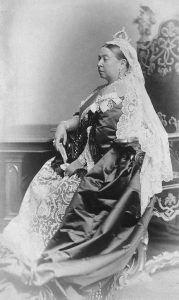Reading Comprehension About the Victorian Era

Develop your reading skills. Read the following text about the Victorian Era and do the comprehension task.
The Victorian Era

During Queen Victoria’s reign, spanning from June 20, 1837, to her passing on January 22, 1901, Britain experienced what is often referred to as the Victorian era. This period marked a prolonged era of tranquility, economic growth, heightened cultural refinement, and a burgeoning sense of national pride for Britain.
Prosperity:
Prosperity thrived during the mid-Victorian era, roughly from 1850 to 1870, earning it the moniker of Britain’s “Golden Years.” Economic indicators soared as the national income per capita surged by fifty percent. This prosperity owed much to the rapid industrialization, particularly in sectors such as textiles and machinery. Britain’s expansive global trade network and advancements in engineering further fueled profits for merchants, with exports reaching every corner of the globe.
Society:
Societal transformations accompanied the wave of industrialization, notably the emergence of a burgeoning middle class. This demographic shift significantly reshaped social structures, norms, and values. The middle-class lifestyle became characterized by distinct traits, with the concept of home undergoing a notable evolution. Previously, residential spaces often merged with workplaces, blurring the boundaries between public and private life. However, as noted by Kate Summerscale (2009), the 1850s witnessed a retreat into the domestic sphere, marked by a newfound emphasis on privacy and seclusion. The bourgeois lifestyle revolved around interior spaces, shielded by heavy curtains and guarded against intrusion, only opening up for select social gatherings or events.
Literature:
Literature flourished during the Victorian era, with the novel supplanting poetry as the dominant literary form. Charles Dickens, whose literary career spanned Victoria’s reign, stands as a towering figure of this period, with seminal works like “Pickwick Papers” and “Our Mutual Friend” capturing the essence of Victorian society. Other notable novelists of the era include William Thackeray, the Brontë sisters—Charlotte, Emily, and Anne—George Eliot, and Thomas Hardy.
In the realm of poetry, Robert Browning and Alfred Tennyson emerged as the era’s leading voices, although modern tastes have inclined toward the works of Thomas Hardy. The latter part of Victoria’s reign also witnessed the early poetry of W. B. Yeats.
The theatrical landscape evolved gradually, with significant contributions emerging in the latter decades of the 19th century. Gilbert and Sullivan’s comic operas gained popularity in the 1870s, while the 1890s saw the emergence of George Bernard Shaw’s thought-provoking plays and Oscar Wilde’s witty masterpiece “The Importance of Being Earnest” in 1895.
Conclusion:
In essence, the Victorian era stands as a pivotal period in British history, characterized by unprecedented prosperity, cultural flourishing, and enduring literary and artistic achievements that continue to shape our understanding of the era today.
References:
Kate Summerscale, The Suspicions of Mr. Wicher, (2009) pp 109-10, citing A. Wohl, The Victorian Family: Structure and Stresses (Palgrave Macmillan, 1978)
Source: Wikipedia
Comprehension Task: True or False
Read the following statements about the Victorian era carefully. Decide whether each statement is true or false based on the information provided in the text.
- The Victorian era refers to the reign of Queen Elizabeth I. (False)
- The mid-Victorian era is often referred to as Britain’s “Golden Years” due to unprecedented prosperity. (True)
- The rise of the middle class during the Victorian era had no impact on societal norms and values. (False)
- Charles Dickens was a prominent novelist during the Victorian era, known for works like “Pickwick Papers” and “Our Mutual Friend.” (True)
- The theatrical scene in Victorian England saw significant developments primarily in the early 19th century. (False)
Related Pages:

